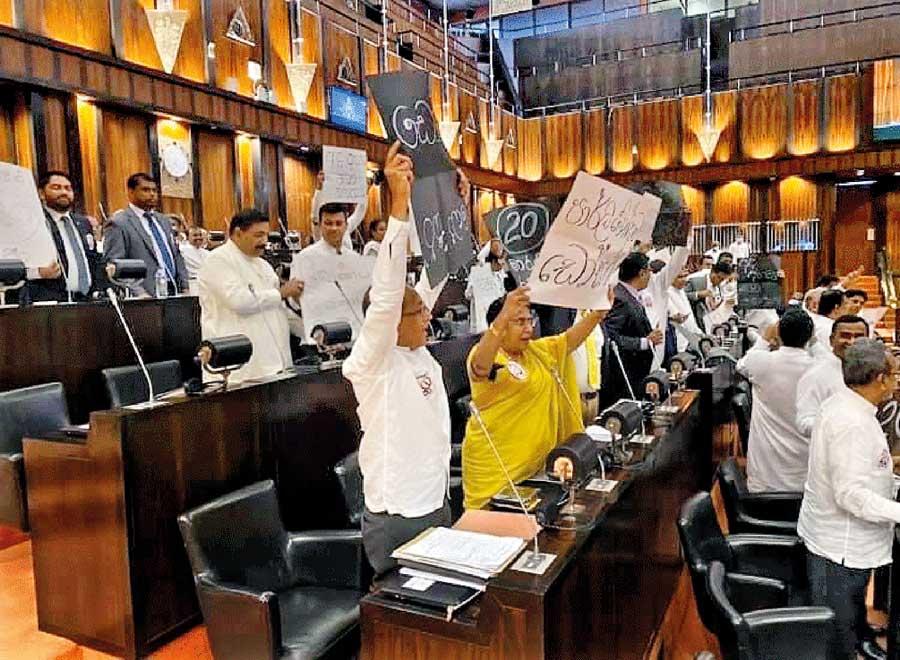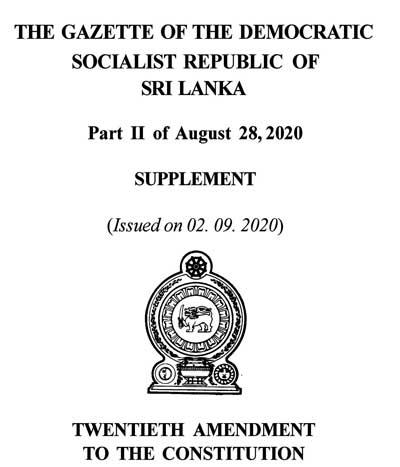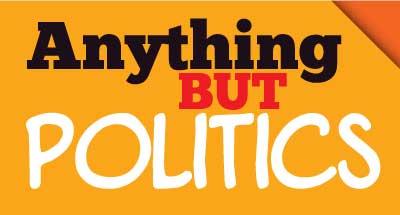Reply To:
Name - Reply Comment

The government presented the bill titled ‘20th Amendment to the Constitution’ to Parliament in its original form despite attempts by a section of the government to get a fresh version of it with some changes included. 
This is the first legislative work by the new government that has been elected with a two-thirds majority along with the support of the like-minded minor parties from the north and the east.
The Bill ran into hot water with some groups within the government itself making reservations about certain provisions of it. The 20th Amendment is basically sought to be enacted to undo the 19th Amendment incorporated during the time of the previous Yahapalana government except a few provisions of it dealing with the term limit of the president, duration of Parliament etc.
"Internal criticism of the new Bill centred on the provisions such as the ones to make way for dual citizens to enter Parliament"
Internal criticism of the new Bill centred on the provisions such as the ones to make way for dual citizens to enter Parliament and for the abolition of the national audit commission. Following dissension within the government, Prime Minister Mahinda Rajapaksa appointed a nine-member committee headed by Education Minister Prof. G.L. Peiris to look into areas of contention as raised by some of the ruling party members.
Though the committee report was meant to be submitted to the Cabinet on September 16, it did not materialise. Instead, the government wanted the Bill to be presented to the House without any alteration of its original text. Accordingly, the draft Bill is now placed on the Order Paper of Parliament. Any amendment can only be considered to be incorporated only during the committee stage of the debate of the Bill.
Normally, the committee stage is meant to include small changes that do not revise the original characteristic or  subject of any given Bill. It has always been the case in the history of Sri Lanka, Parliament bar one instance in which an amendment contrasted with the core of the bill was incorporated during the committee stage in 2017. That was the introduction of the Provincial Council Elections (Amendment) Act in September, 2017. The original bill sought to increase the quota of nominations for woman representatives in the lists of candidates contesting the elections to the provincial councils. However, in a controversial manner, an amendment was brought in during the committee stage to change the electoral system. It changed the entire characteristic of the original piece of legislations placed before the House. Then Speaker Karu Jayasuriya who allowed it at that moment despite objection by the then opposition later admitted it as a wrong precedent.
subject of any given Bill. It has always been the case in the history of Sri Lanka, Parliament bar one instance in which an amendment contrasted with the core of the bill was incorporated during the committee stage in 2017. That was the introduction of the Provincial Council Elections (Amendment) Act in September, 2017. The original bill sought to increase the quota of nominations for woman representatives in the lists of candidates contesting the elections to the provincial councils. However, in a controversial manner, an amendment was brought in during the committee stage to change the electoral system. It changed the entire characteristic of the original piece of legislations placed before the House. Then Speaker Karu Jayasuriya who allowed it at that moment despite objection by the then opposition later admitted it as a wrong precedent.
"The Bill ran into hot waters with some groups within the government itself making reservations about certain provisions of it"
Accordingly, substantial changes to any bill during the committee stage are only rare occurrences. What is done at that stage of the debate is the incorporation of minor changes in wordings and numbers. As such, one cannot expect substantial changes to the 20th Amendment during the committee stage of the debate whenever it is taken up in Parliament this time.
However, some groups representing the government such as Yuthukama Organisation and the National Joint Committee will push for certain changes such as retaining the ceiling on the size of the Cabinet and non-Cabinet ministers . These groups are in favour of the president keeping the power to dissolve Parliament after one year. If the president retains such power, they argue, the appointment of the Cabinet ministers should be done in consultation with the prime minister as envisaged in the 19th Amendment. They are opposed to vesting both the powers simultaneously in the hands of the president- to dissolve Parliament after one year and to appoint the  Cabinet of Ministers without consulting the prime minister. These groups will try their best to prevail upon the government hierarchy to be flexible and accommodate at least some of their proposals at this last stage.
Cabinet of Ministers without consulting the prime minister. These groups will try their best to prevail upon the government hierarchy to be flexible and accommodate at least some of their proposals at this last stage.
But, it is unlikely that the government will opt for substantial changes despite any dissension within. The government will only clean up the text of the bill during the committee stage by making certain alternations.
Obviously, failure on the part of the government leadership to accommodate viewpoints of those backing it will lead to resentment. But, it will not have any electoral impact on the government in the short run because it is still at the zenith of its popularity.
"The government says 20A is a temporary arrangement until the enactment of a totally new constitution later"
Politically speaking, the entire opposition is in a feeble position against a government with a two-thirds majority. Any government MP harbouring resentment has to fall in line either willingly or unwillingly at the end of day as otherwise options are limited for him.
The government has decided to remove the ceiling on the size of the Cabinet ministers as a move to rope in some crossovers from the opposition giving ministerial prospects. Besides, a few opposition MPs mainly representing the Muslim and upcountry Tamil parties are in talks with the government to cross over and vote for the 20th Amendment when it is debated in the House on a later date.
Also, the government says the 20th Amendment is a temporary arrangement until the enactment of a totally new constitution later. The experts’ committee appointed in this regard met on September 19 to discuss the way forward.